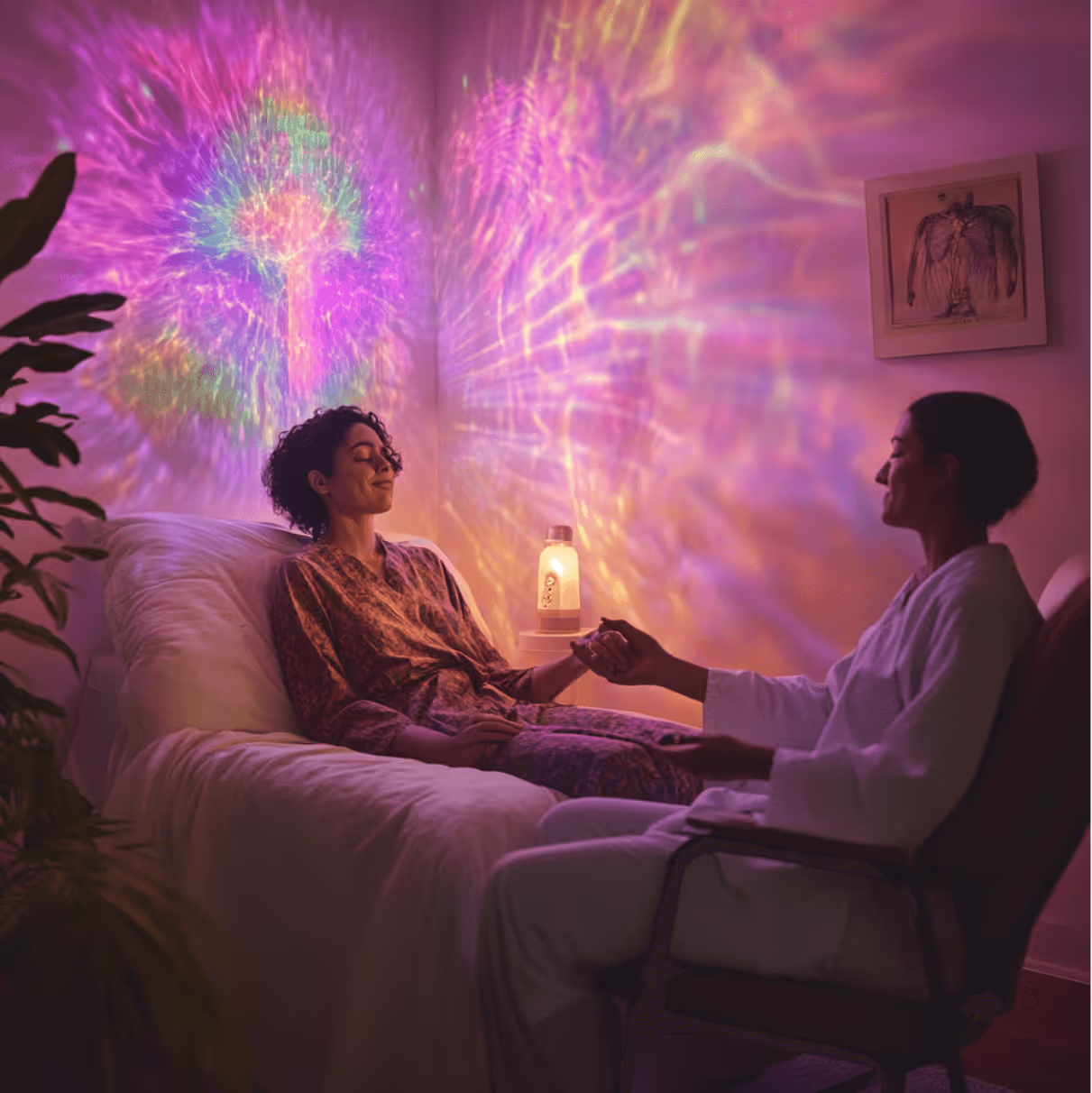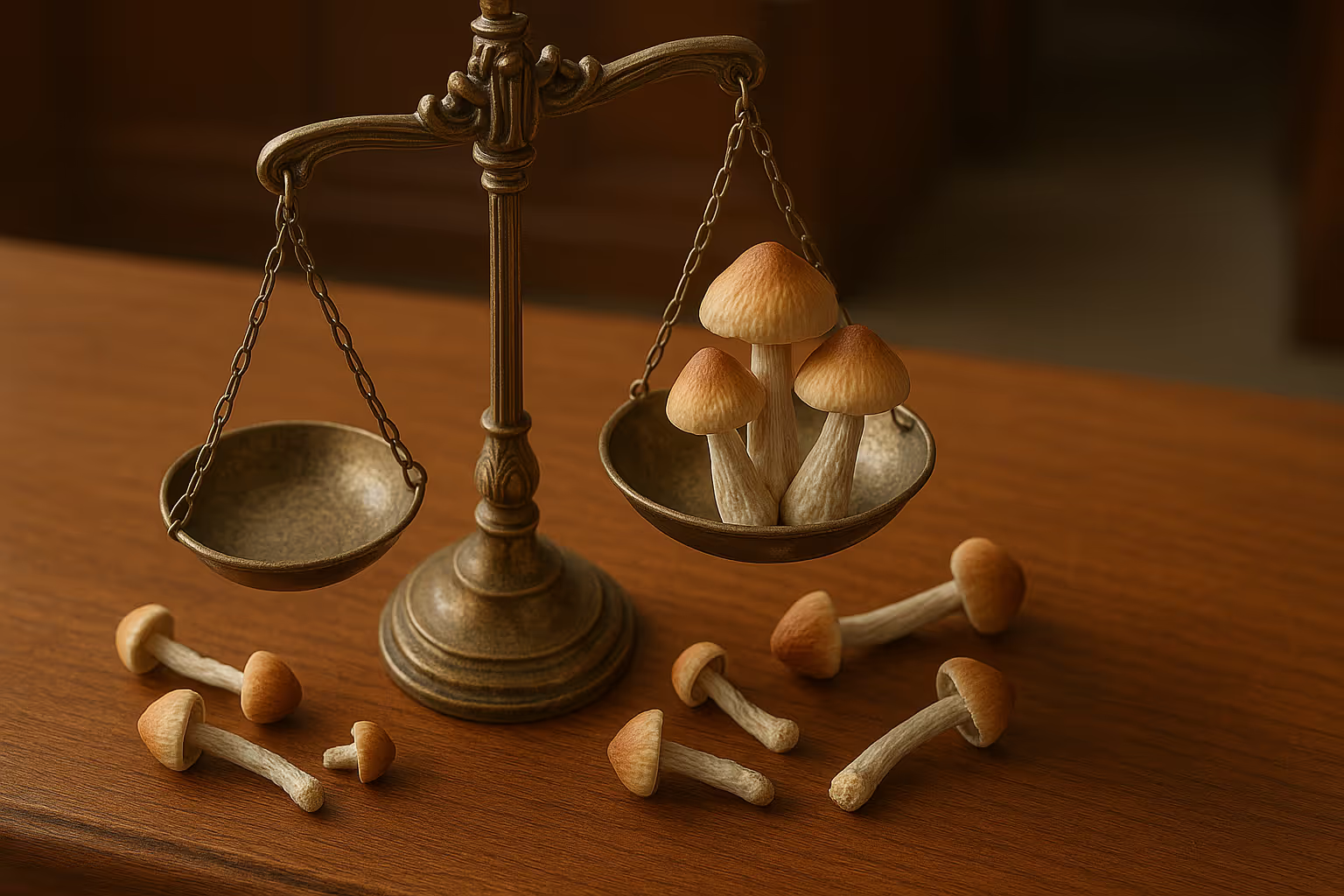How Therapeutic Alliance Enhances Outcomes in Psilocybin Therapy for Depression

This is a research paper summary written by Tommaso Barba, a PhD candidate at the Centre for Psychedelic Research at Imperial College London.
Summary
- Psilocybin-assisted therapy involves the administration of a psychedelic drug along with psychological support, aiming to induce positive psychological effects that could alleviate symptoms of depression.
- What is therapeutic alliance? The therapeutic alliance refers to the collaborative and trusting relationship between a therapist and a participant. It includes elements like mutual trust, agreement on treatment goals, and the personal bond developed during therapy. This alliance is considered a key factor in successful psychotherapeutic interventions, as it enhances the participant's engagement and openness, which can lead to better treatment outcomes.
- The study was a randomized, waiting list-controlled clinical trial that involved two oral doses of psilocybin for individuals with MDD. Participants were randomly assigned to either an immediate treatment group or a delayed treatment group. The research also examined whether therapeutic alliance ratings changed over time and how these changes correlated with participants' depression scores and psilocybin experiences.
Title: The therapeutic alliance between study participants and intervention facilitators is associated with acute effects and clinical outcomes in a psilocybin-assisted therapy trial for major depressive disorder.
Objective
This study aimed to investigate the relationship between the therapeutic alliance between participants and intervention facilitators, and the clinical outcomes in a psilocybin-assisted therapy trial for individuals diagnosed with major depressive disorder. The primary focus was to understand whether the strength of the therapeutic alliance impacted acute psilocybin effects and subsequent reductions in depressive symptoms.
Number of participants: The study involved 24 adult participants who were diagnosed with moderate-to-severe major depression.
Demographics: Participants were aged between 21 and 75 years, with 75% being women and 25% men. The majority (90%) identified as white, non-Hispanic, and heterosexual. Most participants had a college degree, and over half were employed at the time of the study. All participants had experienced their current major depressive episode for an average of 20.7 months.
Study design: Participants received two ascending doses of psilocybin approximately one to two weeks apart. Each dosing session was preceded by preparatory therapy sessions with trained facilitators, and integration sessions followed each dosing to help participants process the psychedelic experience. The primary outcomes were assessed at multiple timepoints post-treatment to gauge both short-term and long-term effects.
Location: The study was conducted at the Center for Psychedelic Drug Research and Education at The Ohio State University and the Center for Psychedelic and Consciousness Research at Johns Hopkins University.
Dosing: Participants received two oral doses of psilocybin, one at 20 mg/70 kg and the second at 30 mg/70 kg. Both doses were administered under the supervision of trained facilitators in a comfortable, non-clinical setting to optimize the safety and effectiveness of the sessions.
Outcome measures: The main outcome measures included the therapeutic alliance (assessed via the Working Alliance Inventory-Short Revised) and depression severity (measured by the GRID-Hamilton Depression Rating Scale). Acute effects of psilocybin, including mystical experiences and psychological insights, were also assessed to determine their correlation with treatment outcomes.
Results/findings:
- The therapeutic alliance was found to increase significantly from the final preparation session to one-week post-intervention. A stronger alliance at the final preparation session correlated with better depression outcomes at follow-up points of 4 weeks, 6 months, and 12 months.
- Higher ratings of the therapeutic alliance during the final preparation session were associated with higher peak ratings of mystical experiences and psychological insights during the psilocybin sessions. These experiences, in turn, predicted lower depression scores during follow-up assessments.
- The study emphasized the importance of the therapeutic relationship, with stronger alliances predicting improved depression scores across all measured timepoints, suggesting that the quality of the therapist-participant relationship may enhance the therapeutic potential of psilocybin.

Significance
These findings align with insights from traditional shamanic practices, which have long emphasized the role of the facilitator in the healing process. In traditional settings, such as Ayahuasca ceremonies, practitioners undergo extensive apprenticeships to develop skills that foster emotional and spiritual 'resonance' during rituals. This idea of resonance parallels the concept of the therapeutic alliance, where the facilitator's presence and connection with the participant are integral to enhancing the therapeutic outcome. Recognizing the therapeutic value of these deep, resonant relationships in modern settings suggests that facilitators play an essential role beyond merely administering psychedelics, they actively shape the therapeutic environment to promote emotional breakthroughs and therapeutic effects.
References
Levin, A. W., Lancelotta, R., Sepeda, N. D., Gukasyan, N., Nayak, S., Wagener, T. L., Barrett, F. S., Griffiths, R. R., & Davis, A. K. (2024). The therapeutic alliance between study participants and intervention facilitators is associated with acute effects and clinical outcomes in a psilocybin-assisted therapy trial for major depressive disorder. PloS one, 19(3), e0300501.

.svg)









.svg)